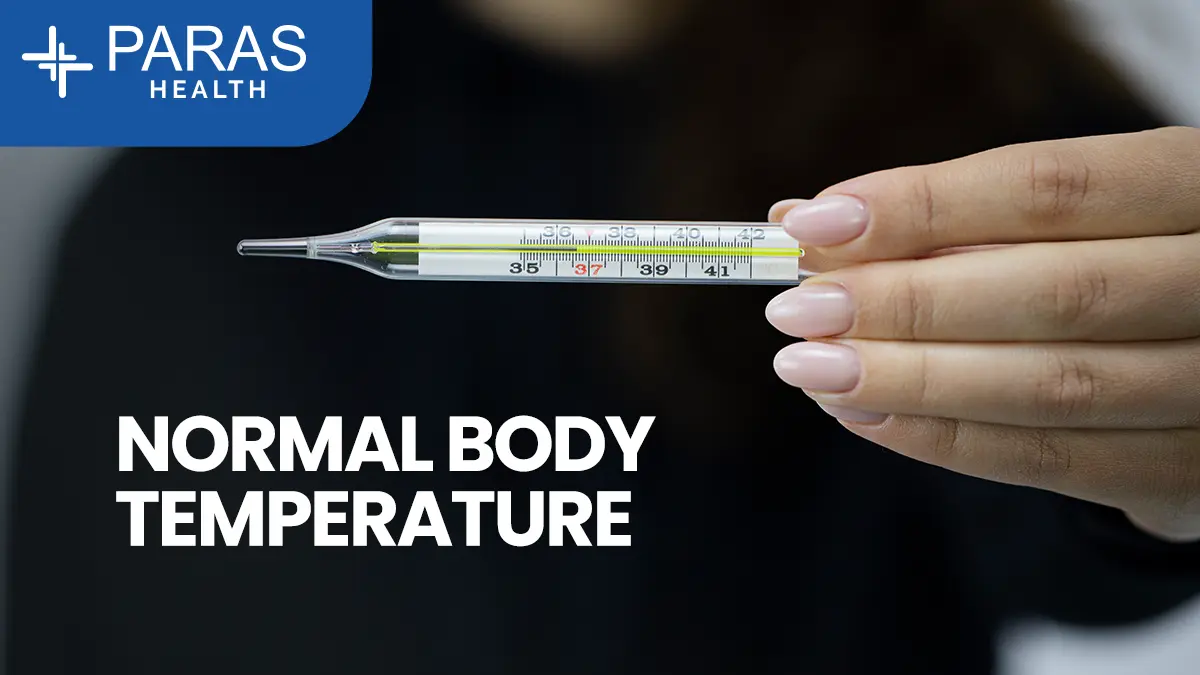Symptoms of Typhoid: Early Signs, Common Symptoms, and When to Doctor
May 05, 2025
Typhoid fever is a serious infection that can make you feel extremely sick if not detected early. Understanding the symptoms of typhoid is crucial because early treatment can help prevent serious complications. In this blog, we’ll cover the first signs of typhoid, how symptoms progress, and when you should seek medical help.
Let's dive in.
What is Typhoid Fever?
Typhoid fever is caused by the bacterium Salmonella Typhi. It spreads through contaminated food and water, and once it enters your system, it can affect many organs. Knowing the typhoid fever symptoms can help you act quickly if you or someone close to you falls sick.
Early Symptoms of Typhoid
The early symptoms of typhoid usually appear 6 to 30 days after exposure. Initial symptoms of typhoid can often be mistaken for a viral infection, making early detection tricky. Here's what to watch out for:
- First signs of typhoid include a gradual rise in fever over several days.
- Weakness and fatigue that doesn’t seem to go away.
- Headache due to typhoid that feels persistent and dull.
- Loss of appetite accompanied by mild abdominal pain.
These common symptoms of typhoid are your body’s first warning signs that something is wrong.
Common and Severe Symptoms of Typhoid
As the infection progresses, symptoms may worsen. Severe typhoid symptoms include:
- High fever that can reach up to 104°F (40°C).
- Body aches and pains making movement difficult.
- Dry cough, often overlooked, is a key typhoid symptom.
- Skin rash, particularly small, pink spots known as rose spots typhoid.
- Constipation or diarrhea — both are possible, depending on the individual.
- Chills and sweating without any reason.
- Dehydration due to typhoid, especially if diarrhea is severe.
- Confusion and delirium typhoid, when infection reaches the brain.
- Enlarged spleen and liver, detectable by a doctor during a check-up.
If left untreated, worsening typhoid symptoms can lead to serious complications like:
-
- Severe dehydration in typhoid cases
- Intestinal perforation symptoms typhoid — a life-threatening emergency
- Typhoid septicemia symptoms (blood poisoning)
Symptoms of Typhoid in Different Groups
- Symptoms of typhoid in adults: Typically severe fever, abdominal pain, and weakness.
- Symptoms of typhoid in children: Fever, irritability, and diarrhea are more common.
- Symptoms of typhoid in females and males are usually similar, but complications can vary based on immunity levels.
Sometimes people experience silent symptoms of typhoid or mild typhoid symptoms where signs are not very obvious, making diagnosis harder. In some cases, hidden symptoms of typhoid can delay treatment.
What Happens If Typhoid Is Left Untreated?
Ignoring the early warning signs can lead to symptoms of untreated typhoid like:
- Severe gastrointestinal bleeding
- Intestinal rupture
- Persistent high fever
- Mental confusion
People recovering from typhoid may experience typhoid relapse symptoms where the fever and other symptoms return.
How to Identify Typhoid Symptoms
You should suspect typhoid if:
- You have a prolonged fever lasting more than 3-5 days.
- Accompanying symptoms like headache, loss of appetite, abdominal pain, and dry cough are present.
Tests like blood test for typhoid diagnosis (including the Widal test for typhoid) help confirm the disease. If you're unsure, consult a doctor — they can guide you on confirming typhoid fever symptoms.
When Should You See a Doctor?
Don't wait for symptoms to worsen. When to see a doctor for typhoid:
- Persistent fever beyond three days
- Severe weakness
- Signs of dehydration
- Confusion or difficulty in focusing
Early medical intervention can make a huge difference.
How Long Do Typhoid Symptoms Last?
Typically, how long typhoid symptoms last depends on how early treatment starts. With antibiotics, symptoms usually start to improve within 2–3 days and clear up within 7–10 days. Without treatment, typhoid fever can last weeks or even months, leading to dangerous complications.
Conclusion
Recognizing the symptoms of typhoid early can save you from severe complications. Whether it’s the first signs of typhoid or severe typhoid symptoms, timely diagnosis and treatment are crucial. If you or your loved ones experience any of these signs, don’t delay — consult a doctor and get tested.
At Paras Health, our expert team of doctors is equipped with advanced diagnostic facilities and comprehensive care protocols to detect and treat typhoid fever promptly.
Don’t ignore the warning signs. Book your consultation at Paras Hospital today and take the first step towards a faster, healthier recovery!
FAQs About Symptoms of Typhoid
What are the early symptoms of typhoid?
Early symptoms include low-grade fever, weakness, fatigue, headache, abdominal discomfort, and loss of appetite.
Can you have typhoid without a high fever?
In rare cases, especially with mild typhoid symptoms, fever may not be very high initially but usually increases over time.
Is headache a symptom of typhoid?
Yes, headache due to typhoid is a common early symptom and can feel like a persistent dull ache.
How do I know if I have typhoid or viral fever?
While both cause fever and weakness, typhoid usually has a gradual increase in fever, abdominal pain, and specific features like rose spots. Testing through a blood test for typhoid diagnosis is necessary to confirm.
Can typhoid symptoms come back?
Yes, symptoms of typhoid relapse can occur in some patients after initial recovery if the bacteria are not fully eliminated.
When should I seek emergency care?
If you notice severe abdominal pain, confusion, inability to drink fluids, or signs of dehydration, seek medical help immediately.








 (1).webp)
